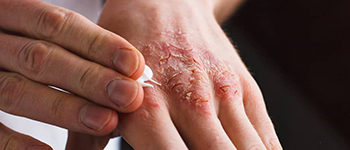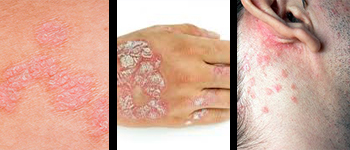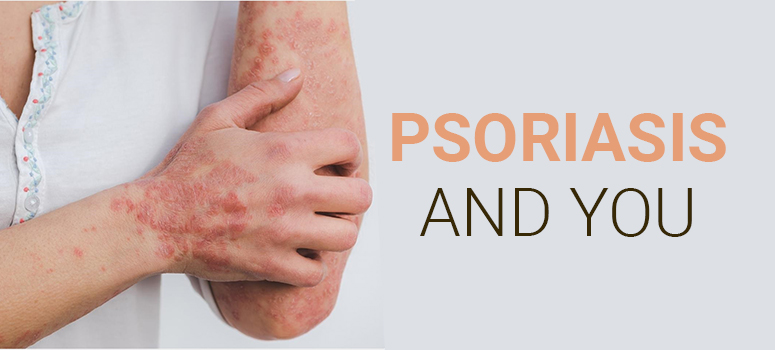Psoriasis is an autoimmune disorder that affects your skin. In this condition, your body creates excessive skin cells, leading to irritation, patches, scaling, and dryness. Psoriasis typically affects two age groups: one between 20 to 30 years and the other between 40 to 50 years. However, the condition can also be seen in children.
About 125 million people all over the globe have psoriasis, which is a major cause for concern. As the condition becomes more widespread, it can lead to other complications such as psoriatic arthritis or psoriatic erythroderma. In fact, approximately 30 to 33 percent of people with the condition can develop psoriatic arthritis.
It can also lead to some damaging social and psychological effects in its patients – about 62% of people with psoriasis suffer from depressive symptoms.
With so many physical and mental health concerns tied to the disorder, it is necessary to identify its symptoms and get the correct treatment. But before you learn how to get rid of psoriasis, let’s understand how the disorder affects your body.
Understanding Psoriasis

However, in people with psoriasis, the skin cells tend to multiply 10 times faster than the usual skin growth cycle. Thus, new cells do not get time to fall of the skin’s surface and accumulate as scaly, thick, and red plaques.
Psoriasis typically affects the elbows and knees. You may also notice these painful, itchy red patches on your hands, feet, neck, scalp, and face.
How Can You Identify Psoriasis?

Regardless, the following warning signs will help you
distinguish psoriasis from other disorders and seek help immediately:
- Red patches with white scales on the elbows, knees, or the scalp
- Excessive dandruff condition on the scalp that is itchy or red
- Multiple patches or spots on the body
- Red, inflamed skin or puss-filled blisters
What Are the Symptoms of Psoriasis?

- Thick, red patches of skin with silvery-white scales that itch and feel sore
- Burning sensation
- Thick and pitted nails
- Swollen and stiff joints, which may indicate psoriatic arthritis
- Small scaling spots (in children)
- Bleeding (in severe cases)
What Causes Psoriasis?

The second reason behind psoriasis includes environmental triggers, but these are still unclear. It is also linked with autoimmune theory, though no autoantigen responsible for the disease is identified yet.
Essentially, T-cells in your immune system attack foreign objects that enter your body to protect you from disease. But, for people with psoriasis, the T cells attack healthy skin cells, leading to the overproduction of new cells. This causes dead skin cells to accumulate and result in the tell-tale sign of red, scaly patches on the skin.
These trigger factors can also cause or worsen the symptoms of psoriasis:
- Metabolic syndrome
- Skin infections
- Vitamin D deficiency
- Obesity
- Stress
- Smoking and alcohol consumption
Does Psoriasis Get Passed on from One Person to Another?

What Is the Best Treatment for Psoriasis?

But if you have extensive or severe psoriasis, you may need to take oral medications like oral retinoids. You may also have to make lifestyle changes such as giving up alcohol and smoking and following a specific diet
If topical ointments aren’t helping, your dermatologist may suggest biologics to help alleviate the symptoms. These injections block the inflammatory mediators that cause psoriasis. You may self-inject biologics at home or ask a medical professional to administer them to you.
An alternative treatment option is getting ultraviolet (UV) or light treatment like phototherapy and narrowband UVB. Exposing the skin to plenty of sunlight and taking cold showers are some effective
skin care tips for psoriasis.
Is There a Permanent Cure for Psoriasis?

Moreover, psoriasis is a chronic disease, so even if the symptoms have been treated successfully, they may come back. Thus, you should schedule regular visits with your dermatologist to keep the condition and its further complications in check.
Conclusion
Being on the lookout for the first symptoms of psoriasis can help you control it before it becomes too pervasive.
You should see your dermatologist if you suspect you have psoriasis and get the recommended solutions and treatments. Even though over-the-counter treatments are available, it is not a good option to self-medicate since each type of psoriasis requires its own attention and treatment.
A qualified doctor can conduct tests and screenings to diagnose the problem and provide the best treatment for psoriasis, allowing you to manage the disorder and improve your quality of life.
To book an appointment with a well-known cosmetologist or dermatologist in your area, please visit Skin and Hair Academy.














